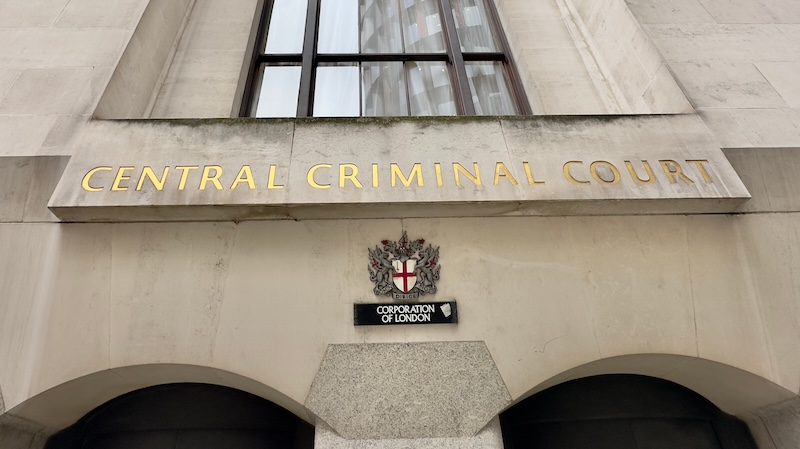Aspiring barrister Charlotte Paxford explores how bias can blur the line between truth and conviction

In the criminal justice system of England and Wales, the investigating police officer (IPO) plays a pivotal role in ensuring that justice is served. IPOs are expected to conduct impartial investigations that serve both the public interest and the principles of justice. But are they really as objective as it may seem? Recent research and reviews suggest that this role is fraught with cognitive bias, procedural challenges and systemic pressures that may tilt the scales towards the prosecution.
Legal framework
The IPO’s responsibilities are governed primarily by the Criminal Procedure and Investigations Act 1996 whereby IPOs must, under s.23:
a) pursue all reasonable lines of inquiry whether they support or undermine the case against a suspect;
b) record and retain all relevant material, including unused evidence;
c) ensure proper disclosure to the Crown Prosecution Service and where appropriate to the defence.
Further principles that an IPO must follow is the Code of Ethics as issued by the College of Policing. This mandates that IPOs act with the utmost integrity, fairness and impartiality. However, the practicality of these rules in principle, is suitable but in practice can be complicated by unconscious bias and the culture surrounding alleged offenders — particularly those of crimes such as homicide or sexual offending.
Want to write for the Legal Cheek Journal?
Find out moreA 2023 guidance document from the College of Policing highlights a worrying trend. That trend being that IPOs frequently form an initial hypothesis of guilt which shapes their interpretation of evidence throughout an investigation. This is known as confirmation bias.
Confirmation bias
“The subconscious tendency to selectively search for and emphasise information that supports a preferred hypothesis or conclusion” (Confirmation Bias in Criminal Cases — (Moa Liden, 2023) )
IPOs, despite being trained to remain impartial, often develop an early hypothesis of guilt that will subtly shape their decisions throughout their investigations in the case. As Moa Liden’s research highlights, this bias can influence everything, from interviews with suspects to forensic analysis — all of which leads an IPO to pursue guilt-confirming evidence while potentially overlooking exculpatory materials.
This problem extends far beyond policing work. Prosecutors may be less receptive to contradictory evidence after charges are pressed. Judges may be more inclined to convict the same defendant. These are not necessarily done on purpose, but are decisions made through cognitive distortions — often subconscious — which may undermine the fairness of proceedings. This challenge is acknowledged by the College of Policing in its investigative guidance, urging officers to “consider the opposite” when evaluating evidence — a strategy designed to counteract cognitive distortion by actively exploring alternative theories. How widely this is applied across police forces is hard to tell despite the recommendation.
Want to write for the Legal Cheek Journal?
Find out moreConfirmation bias has serious implications for disclosure practices, which are crucial for preserving trial integrity. The Independent Office for Police Conduct (IOPC) has investigated numerous cases in which IPOs have failed to disclose relevant unused material. Often, because it conflicts with the narrative of guilt. Such failures can lead to wrongful conviction, mistrial or appeals which are particularly damaging for a defendant who bears the burden of such a conviction. Although the CPIA requires collaboration between IPOs and Disclosure Officers, it is argued that their alignment with the prosecution — where the IPO aims to help the CPS to win convictions — results in selective or incomplete sharing of case material. Greater training has been called for in this area, emphasising that fair disclosure if not a bureaucratic formality but a safeguard for justice.
IPOs in the courtroom
It is not the role of the IPO to deliver the prosecution’s case themselves, yet their investigative decisions and records form the backbone of it. It is common for an IPO to be summoned to testify as a witness in order to explain their methods, decision making and to justify any procedural choices made during their investigations. The credibility of an IPO is often scrutinised by the defence, particularly in cases where evidence appears to have been collected or presented through a prosecutorial lens. But does this approach also automatically lead the jury down a prosecution road rather than one that is fair for all? Research suggests that jurors may also carry unconscious bias which will affect how they interpret police testimony . At the judge’s summing up they will be told to take the evidence that they are presented with in a way that they see fit, that no one piece is more or less useful than another piece of evidence — yet surely 12 lay people will take what a police officer says with more weight than what a defendant sitting in the dock says.
Systemic pressures further complicate the IPO’s duty to be impartial. IPOs work closely with CPS prosecutors to ensure that they have a clear and strong case. While this is necessary for trial preparation, it can cultivate a mindset which is more focused on securing a conviction than seeking the truth.
Reform
Efforts to reform police practices are ongoing. The proposed Crime and Policing Bill 2025 includes measures to improve accountability in misconduct investigations such as the Victims Right to Review and introducing stricter time limits for IOPC inquiries. Parliamentary debate on the bill highlights systemic concerns including delays in misconduct proceedings, poor coordination and diminishing public trust in police forces and their impartiality when building a case. Perhaps, broader reforms which go beyond legislative tweaks would be more beneficial in encouraging cultural change and emphasising transparency.
Want to write for the Legal Cheek Journal?
Find out moreIn addressing confirmation bias and to improve decision making quality, the College of Policing promotes reflective practice whereby IPOs are encouraged to challenge assumptions and engage in constructive peer dialogue in order to assess their own reasoning. Tools such as decision logs and structured peer reviews have been proposed to document the decision-making process more transparently.
To conclude…
IPOs are undoubtedly essential to criminal trials in England and Wales. Their role is, clearly, vulnerable to cognitive biases and systemic pressures which ultimately impact fairness of proceedings albeit not on purpose. Confirmation bias can distort an investigation, leading IPOs to focus on evidence which confirms or suggests guilt rather than pursuing all reasonable lines of inquiry. Prosecutorial alignment, poor disclosure practice and inconsistent oversight all hound the problem.
Addressing these issues requires more than procedural reform, it demands a cultural shift towards greater reflection, professional curiosity and clarity. As the Colle of Policing aptly states, investigators must actively “strive to be aware of, and to minimise, their own unconscious biases”. Only then can IPOs truly serve justice rather than secure convictions.
Charlotte Paxford is an aspiring barrister and graduate from Nottingham Trent University in law with business. She has recently completed the Barrister Training Course at Nottingham Law School following the receipt of a Cassel Scholarship from the Honourable Society of Lincoln’s Inn. She is passionate about the law and progressing in her career at the Bar. Her LinkedIn account can be found here.
 (
( (
(

